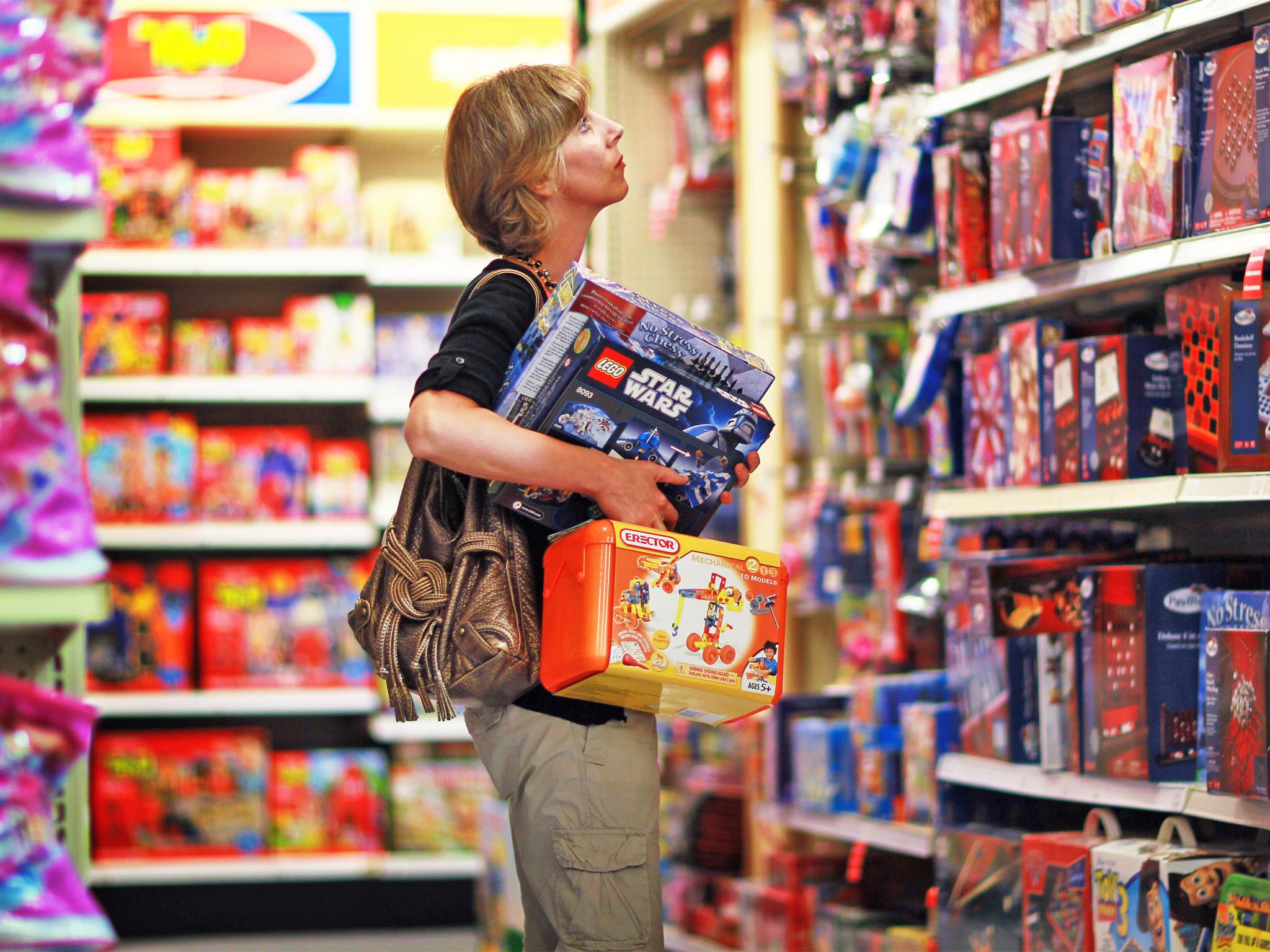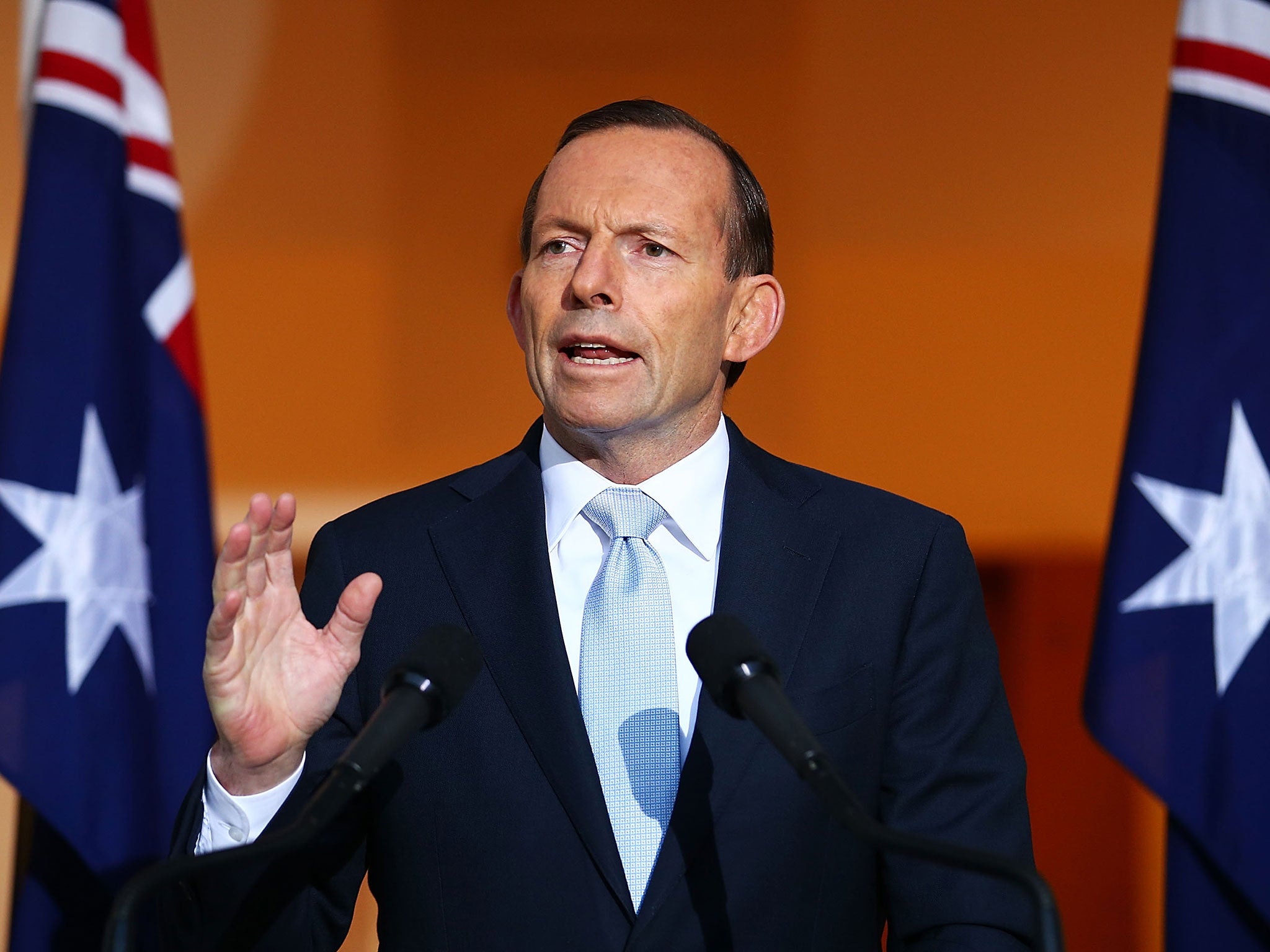Tony Abbott says campaigners against gendered toys should 'let boys be boys and girls be girls'
Australian Prime Minister said parents should decide what they buy children

Your support helps us to tell the story
From reproductive rights to climate change to Big Tech, The Independent is on the ground when the story is developing. Whether it's investigating the financials of Elon Musk's pro-Trump PAC or producing our latest documentary, 'The A Word', which shines a light on the American women fighting for reproductive rights, we know how important it is to parse out the facts from the messaging.
At such a critical moment in US history, we need reporters on the ground. Your donation allows us to keep sending journalists to speak to both sides of the story.
The Independent is trusted by Americans across the entire political spectrum. And unlike many other quality news outlets, we choose not to lock Americans out of our reporting and analysis with paywalls. We believe quality journalism should be available to everyone, paid for by those who can afford it.
Your support makes all the difference.The Australian Prime Minister has dismissed a campaign against gendered toys, saying people should “let boys be boys and let girls be girls”.
Tony Abbott put the No Gender December campaign, similar to Britain’s Let Toys Be Toys, down to “political correctness”.
It is gaining traction in Australia ahead of Christmas, with Greens senator Larissa Waters backing the push to stop toys and games perpetuating outdated stereotypes, saying “no child’s imagination should be limited”.
When asked about the campaign by Channel Nine news on Tuesday, Mr Abbott, who has three daughters, said he did not support it.
“I certainly don't believe in that kind of political correctness,” he added.
“Let boys be boys, let girls be girls - that's always been my philosophy - and above all else, let parents do what they think is in the best interests of their children.”

The campaign is asking people to sign online pledge that “there is no place for gender stereotypes under my Christmas tree”.
Ms Waters said the separated pink and blue aisles of categorised toys and gender targeted advertising can seem “harmless” but has repercussions.
“Setting such strong gender stereotypes at early ages can have long-term impacts, including influencing self-perception and career aspirations,” she added.
“Outdated stereotypes about girls and boys and men and women, perpetuate gender inequality, which feeds into very serious problems such as domestic violence and the gender pay gap.”

She was lambasted by Australia’s right-wing press for her statements, with one accusing her of trying to “ruin Christmas” under the headline “Greens’ War on Barbie”, with her head Photoshopped on to a doll.
Writing in The Hoopla in the wake of the criticism, she slammed the “sensationalist outcry” and pointed to the example of a seven-year-old British girl, Maggie, who said Tesco was “stupid” for having a sign labelling superhero toys “for boys”.
She added: “Research shows that countries where gender stereotyping is more accepted have higher levels of violence against women.
“Of course, the gendered marketing of toys is just a small piece of the cultural context that creates attitudes of gender inequality. But it doesn’t mean that we should ignore the issue.”
Julie Huberman, the co-founder of campaign group Play Unlimited, said that many toy companies have not moved into 2014, where “women mow lawns and men push prams”.
In response to the Let Toys Be Toys campaign in the UK, several large retailers have pledged to stop displaying products by gender and “girls” and “boys” pages on shopping websites appear to be becoming less common.
Subscribe to Independent Premium to bookmark this article
Want to bookmark your favourite articles and stories to read or reference later? Start your Independent Premium subscription today.
Join our commenting forum
Join thought-provoking conversations, follow other Independent readers and see their replies
Comments